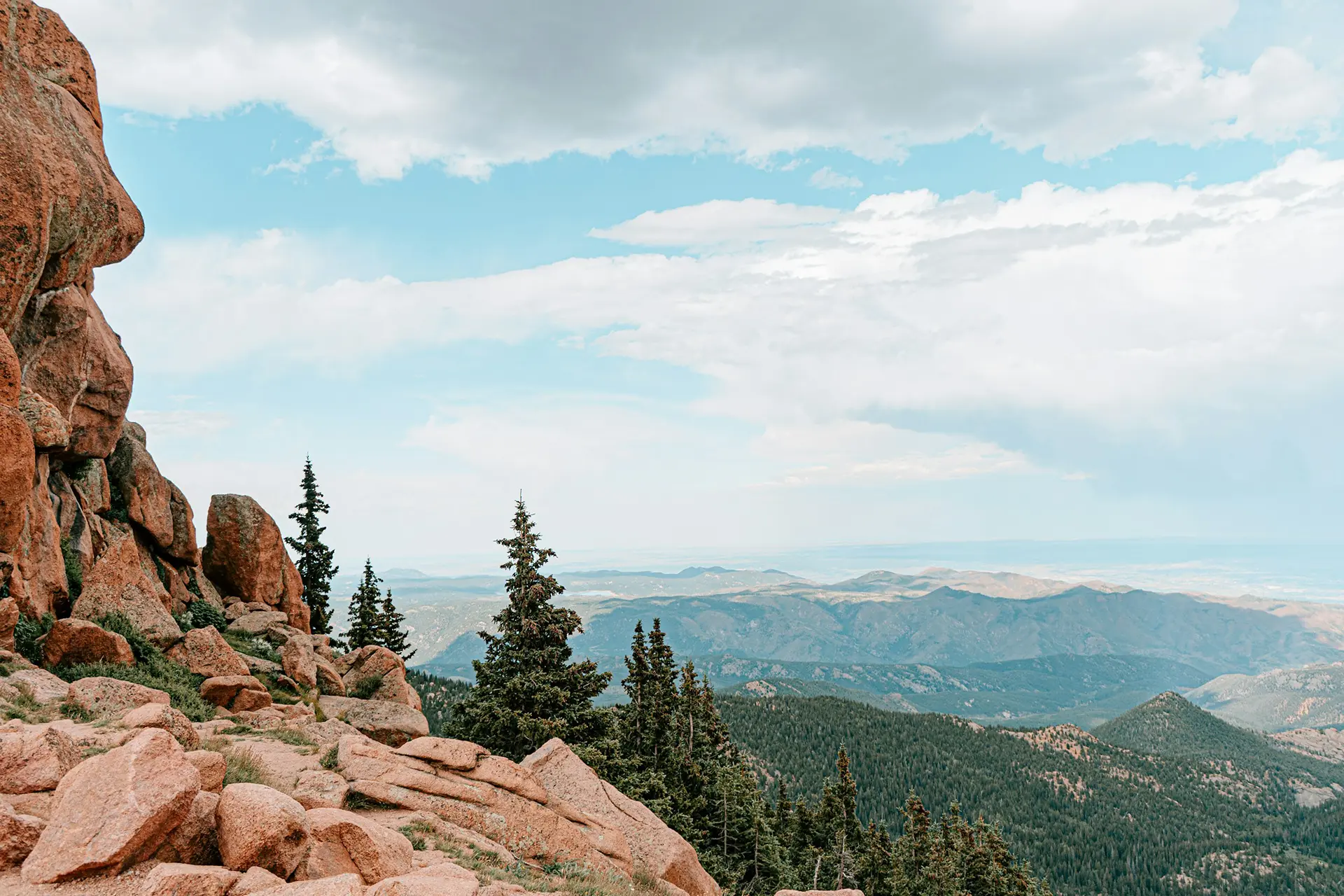Why Colorado Spring Break Beats Every Beach Destination
Here's a truth most college students haven't figured out yet: spring break peaked somewhere around 2003, and it's been a slow decline into crowded beaches, watered-down drinks, and identical Instagram photos ever since. While everyone else is fighting for a sliver of sand in Cancun, Colorado spring breaks sit waiting with something infinitely better—genuine adventure that doesn't require you to pretend you're having fun.
The Mountain Advantage Over Beach Madness
Colorado in March and April offers what psychologists call "novel experiences"—the kind that actually form lasting memories instead of blurry smartphone videos. While beach destinations deliver predictable sun and surf, Colorado spring breaks serve up daily surprises: weather that changes by the hour, wildlife encounters you can't script, and views that make you stop talking mid-sentence.
Crowds thin out dramatically once you leave the main highways
Adventure activities cost less than a single night at a beachfront hotel
Your stories become infinitely more interesting than "we laid on the beach"
Mountain towns offer authentic culture instead of tourist traps
The air quality alone will make you feel like a different person
Why March-April Hits the Sweet Spot
Spring in Colorado operates on mountain time—which means it arrives when it wants to, not when the calendar says it should. This creates the perfect storm of conditions for adventurous travelers who understand that the best experiences happen when nature is changing gears.
Snow conditions remain excellent for winter sports while hiking trails start opening
Tourist crowds haven't arrived yet, so you get the mountains mostly to yourself
Wildlife is more active as animals emerge from winter survival mode
Weather variability means you can experience four seasons in a single day
Accommodation prices drop significantly compared to peak winter or summer rates
The mountains don't care about your spring break timeline—they operate on geological time, which makes every moment you spend there feel both humbling and exhilarating.
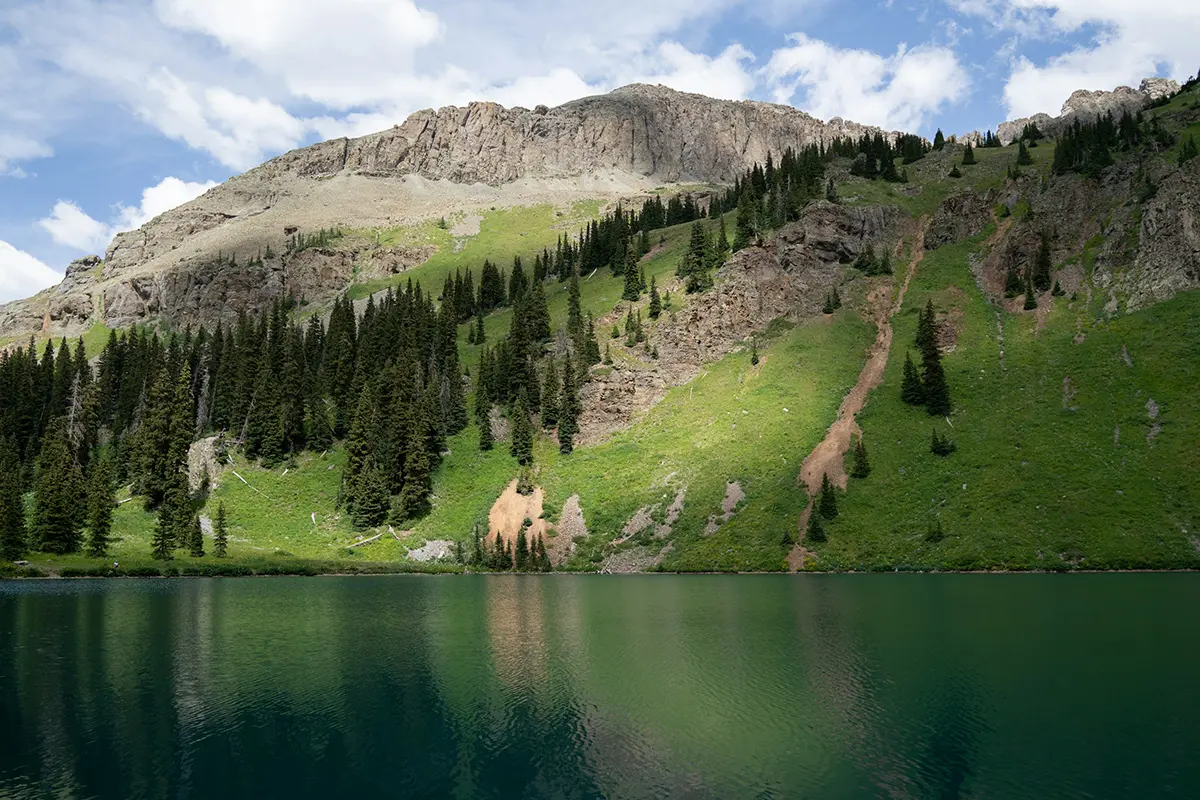
The Case for a Spring Break in Colorado
Most people choose beach destinations because they're safe bets—you know exactly what you're getting, which is both the appeal and the problem. Colorado's mountains operate differently. They don't promise you'll get a tan or guarantee perfect weather, but they offer something beaches simply can't: the possibility that today might be completely unlike anything you've experienced before.
The Economics of Adventure vs. Predictable Fun
Beach spring break follows a depressingly simple formula: transportation + overpriced accommodation + inflated food costs + activities designed to separate you from your money as efficiently as possible. Colorado spring breaks flip this equation on its head.
A week of Colorado adventures often costs less than three nights in a decent beach resort
Many of the best activities (hiking, wildlife viewing, scenic drives) are completely free
Equipment rental costs less than a single day of jet ski rentals
Gas for exploring back roads costs less than one beach club cover charge
What Spring Weather Actually Looks Like in the Rockies
Colorado spring weather gets a bad reputation from people who expect it to behave like spring anywhere else. The reality is more interesting than problematic, once you stop trying to control it and start adapting to it.
March through April in Colorado means you might wake up to snow, hike in shorts by afternoon, and need a jacket again by sunset. This isn't a bug in the system—it's a feature that keeps things interesting and weeds out the tourists who need guaranteed conditions to have a good time.
Morning temperatures often start below freezing, then climb 40+ degrees by midday
Snow can fall any time, but usually melts quickly at lower elevations
High-altitude locations maintain winter conditions while valleys experience spring
Wind patterns create dramatically different conditions within a few miles
Clear skies can shift to storms and back again within hours
Colorado weather teaches you something beach destinations never will: flexibility isn't just a travel skill, it's a life skill that makes everything more interesting.
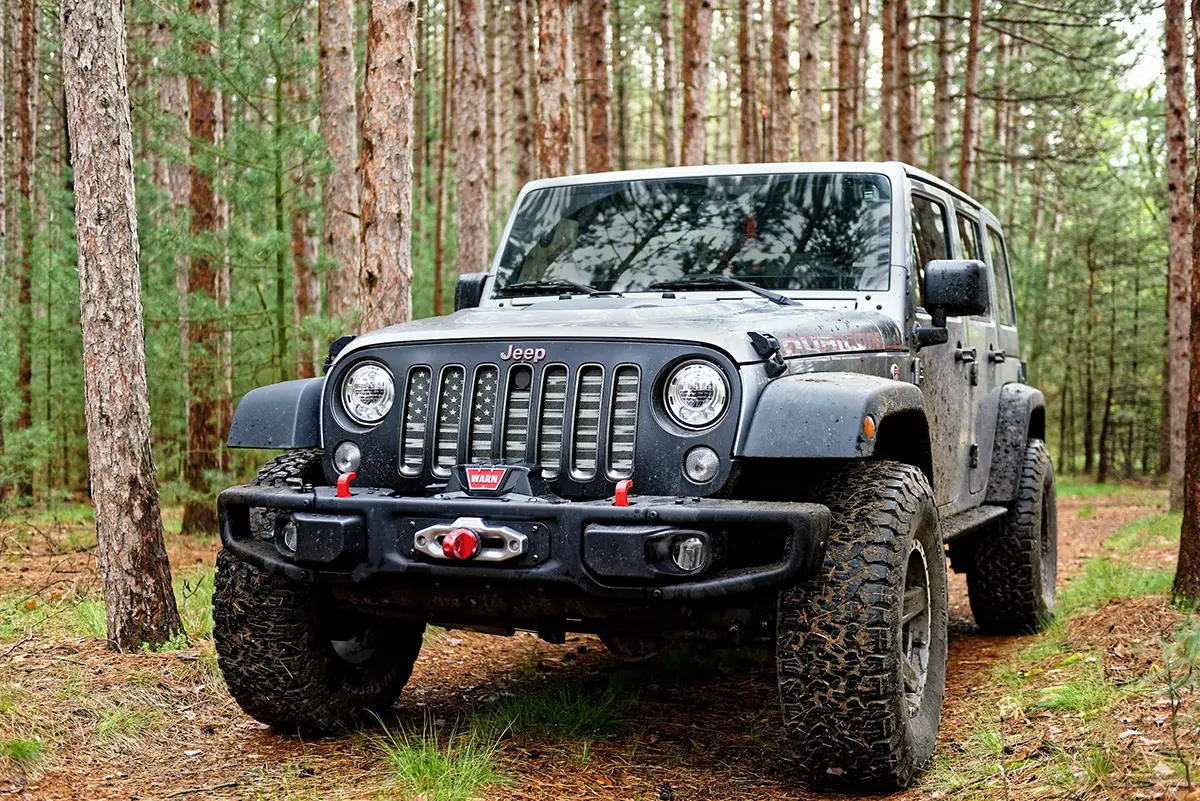
Adventure Categories
Colorado spring break trips create a rare convergence where winter activities overlap with emerging summer possibilities. This isn't the time for single-minded pursuit of one type of adventure—it's the season for sampling everything the mountains offer while conditions remain perfect for activities that won't be possible once full summer arrives.
Snow Sports Without the Ski Resort Circus
Ski resorts are fine if you enjoy paying premium prices to wait in lines with people who learned to ski last week. Spring opens up snow sports that operate on a completely different principle: you and the mountain, without the corporate infrastructure telling you how to have fun.
Backcountry snowshoeing in Rocky Mountain National Park offers silence that ski resorts destroyed decades ago
Cross-country skiing through aspen groves lets you move at the speed of observation rather than adrenaline
Ice climbing for beginners in Ouray sounds terrifying until you try it with proper instruction—then it becomes addictive
Snowmobiling through untouched wilderness in the San Juans delivers the kind of freedom that makes regular transportation feel claustrophobic
Rock, Trail, and Wildlife Adventures
Spring hiking in Colorado requires a different mindset than summer trail running. You're not conquering peaks—you're negotiating with conditions that change based on elevation, exposure, and the mountain's mood that particular day.
Early season hiking focuses on south-facing slopes and lower elevations where snow clears first
Rock climbing in Garden of the Gods and Eldorado Canyon combines reliable weather with routes that challenge every skill level
Wildlife watching peaks during spring as animals emerge from winter survival mode and become actively curious about their environment
Hot springs after cold mountain days create the kind of contrast that makes both experiences more intense
Jeep-Accessible Hidden Gems
This is where having the right vehicle changes everything. Regular cars limit you to paved roads and popular viewpoints. A capable 4x4 opens up Colorado's backcountry like a key fitting into a lock you didn't know existed.
Back roads that regular cars can't handle lead to viewpoints and experiences that 95% of visitors never see
Alpine lakes still partially frozen create landscapes that exist for maybe six weeks each year
Ghost towns and mining history become tangible when you can actually reach the locations where history happened
Scenic drives that few tourists know about offer the kind of solitude that makes you remember why you came to the mountains in the first place
Ready to explore Colorado's hidden backcountry? Cliffhanger Jeep Rentals has locations throughout Southwest Colorado—Durango, Telluride, Dolores, Silverton and beyond—putting you behind the wheel of vehicles built for the terrain that defines real mountain adventure.
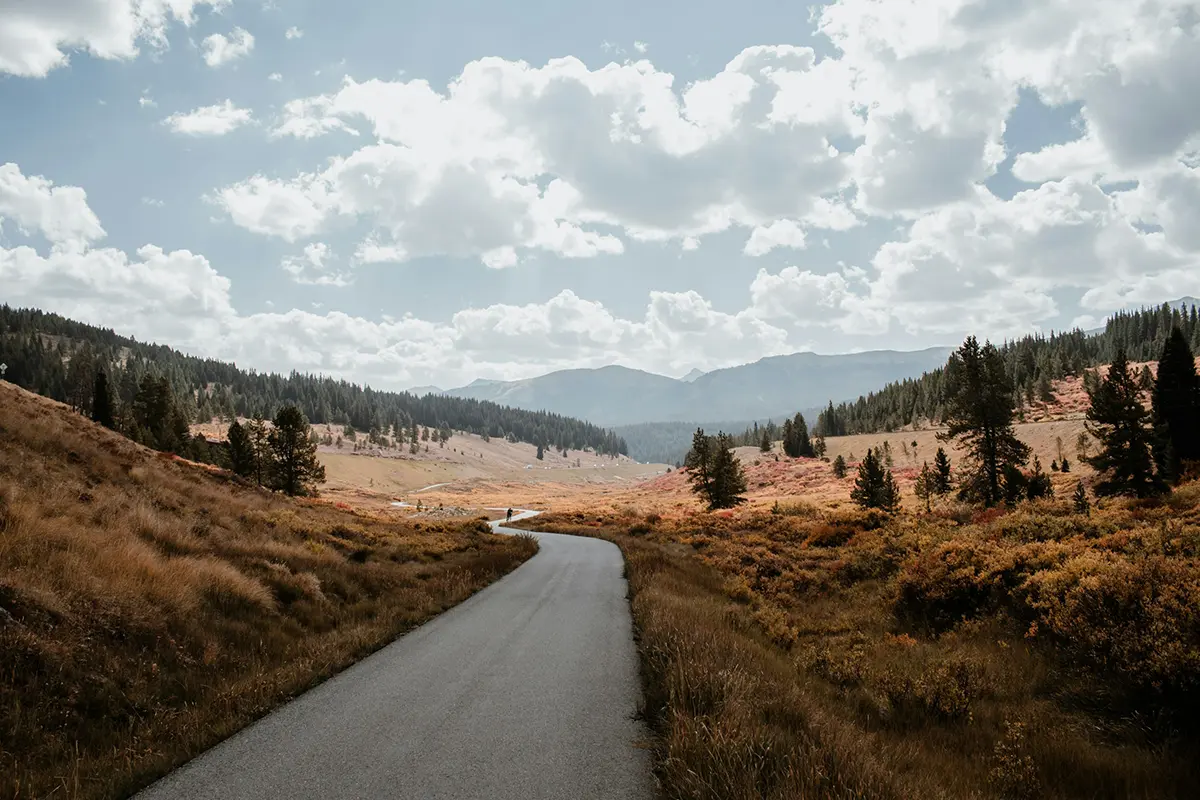
Practical Mountain Wisdom
The outdoor industry loves selling you things you don't need while ignoring the basics that actually matter. Colorado's mountains don't care about your gear brand or how much you spent—they care about whether you're prepared for conditions that can shift faster than your ability to adapt to them.
Gear That Actually Matters
Forget everything you've learned from gear reviews written by people who test equipment in controlled environments. Mountain weather operates on chaos theory principles: small changes create massive differences in what you need to stay comfortable and safe.
Layering systems that work focus on versatility over specialization—base layer, insulating layer, weather shell, period
Footwear for variable conditions means boots that handle snow in the morning and dirt trails by afternoon
What to pack vs. what to rent locally comes down to personal items (clothing, medications) versus bulky equipment (snowshoes, climbing gear)
Electronics need backup power sources and waterproof cases because mountains destroy fragile things
Emergency supplies should include items for conditions worse than you're planning for
Planning Reality
Mountain adventures require a different planning philosophy than beach vacations. You can't control the conditions, but you can position yourself to take advantage of whatever the mountains decide to offer.
Booking accommodations works best when you choose locations that offer multiple activity options within driving distance
Weather contingency plans should include indoor alternatives and flexible scheduling that doesn't lock you into specific days for specific activities
Physical preparation recommendations focus on cardiovascular fitness and leg strength rather than specialized training
Transportation planning means having backup routes and understanding that some roads close without warning
Timing your visit for mid-March through mid-April maximizes your chances of experiencing both winter and spring conditions
Safety Without Paranoia
Mountains demand respect, not fear. The difference between reasonable caution and paralyzing anxiety often determines whether you have great stories or boring ones.
Altitude considerations for sea-level visitors include hydration, slower acclimatization, and recognizing symptoms before they become problems
Basic mountain awareness means understanding weather patterns, knowing your limits, and respecting the fact that mountains operate on their own timeline
When to turn back isn't about failure—it's about living to adventure another day and understanding that discretion creates more opportunities than bravado
Emergency preparedness includes telling someone your plans, carrying communication devices, and having supplies for unexpected overnight stays
Local knowledge trumps guidebook advice every time, so talk to people who live and work in the areas you plan to visit
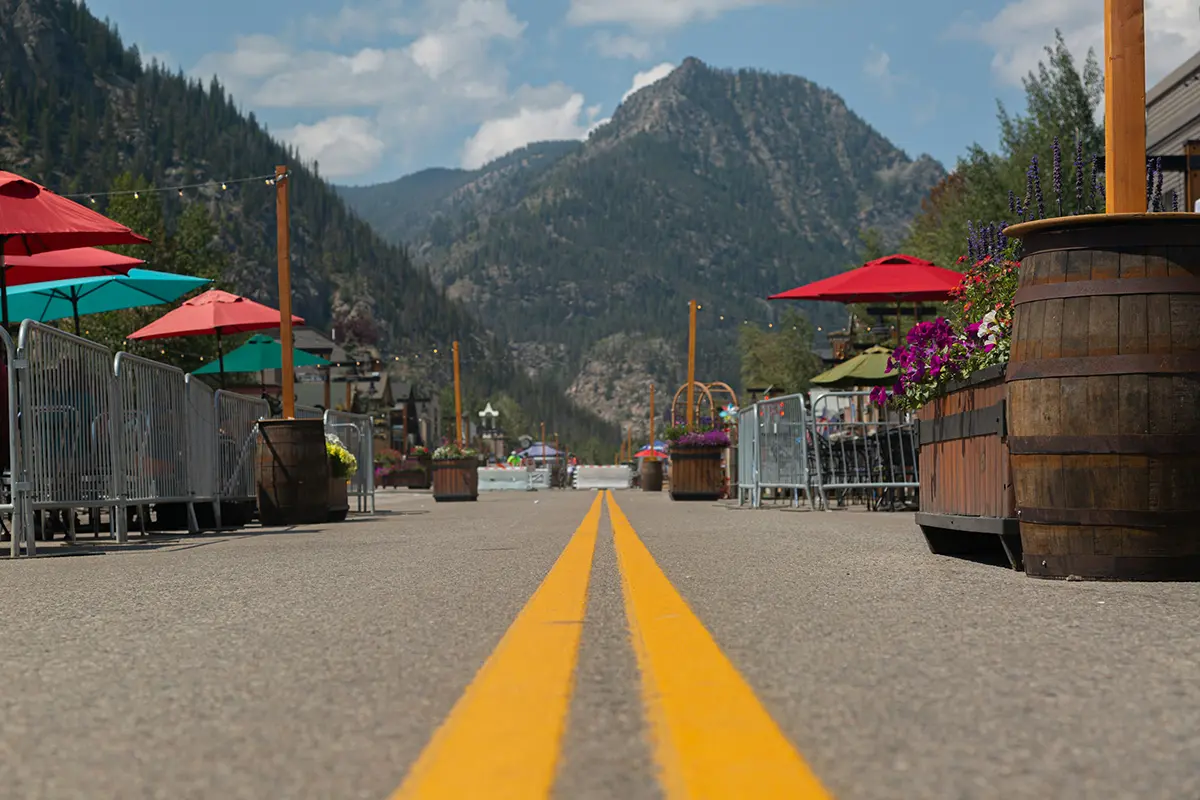
The Cultural Side
Mountain towns aren't just base camps for outdoor activities—they're living laboratories where people have figured out how to build communities around the things that actually matter. These places attract individuals who chose lifestyle over conventional career paths, creating cultures that prioritize authenticity over appearance.
Local Mountain Towns Worth Your Time
Each Colorado mountain town developed its own personality based on geography, history, and the type of people drawn to live there. Understanding these differences helps you choose destinations that match what you're actually looking for, rather than just picking names you recognize.
Durango combines college town energy with serious outdoor culture, anchored by Fort Lewis College and surrounded by some of Colorado's most diverse terrain
Telluride operates as a high-altitude playground where old mining history meets modern adventure culture, creating a unique blend of authentic grit and refined experiences
Crested Butte maintains its reputation as Colorado's last great ski town, where wildflower meadows and Victorian architecture create a setting that feels almost impossibly picturesque
Salida sits in the Arkansas River Valley with an art scene that developed organically around outdoor culture, creating a town where creativity and adventure reinforce each other
Food and Drink Scene in Southwest Colorado
Mountain food culture evolved from necessity—high altitude, extreme weather, and seasonal ingredients created cooking traditions that emphasize substance over style. Modern mountain restaurants honor this heritage while incorporating techniques that would surprise visitors expecting simple trail food.
Brewery culture at elevation produces beers designed for people who burn serious calories during the day and want flavors that complement rather than compete with mountain air
Farm-to-table restaurants using local ingredients operate within growing seasons and transportation realities that create menus focused on what actually grows well at altitude
Coffee shops that fuel early morning adventures understand that their customers need fuel for activities that start before sunrise and continue past sunset
Local distilleries produce spirits using mountain water and grains that reflect the terroir of high-altitude growing conditions
The Human Element
The best part of mountain town culture isn't the scenery or the activities—it's the people who chose to build lives around values that prioritize experience over accumulation. These communities attract individuals who understand that quality of life can't be measured in traditional metrics, creating social environments where conversations tend toward topics that matter rather than small talk that fills time.
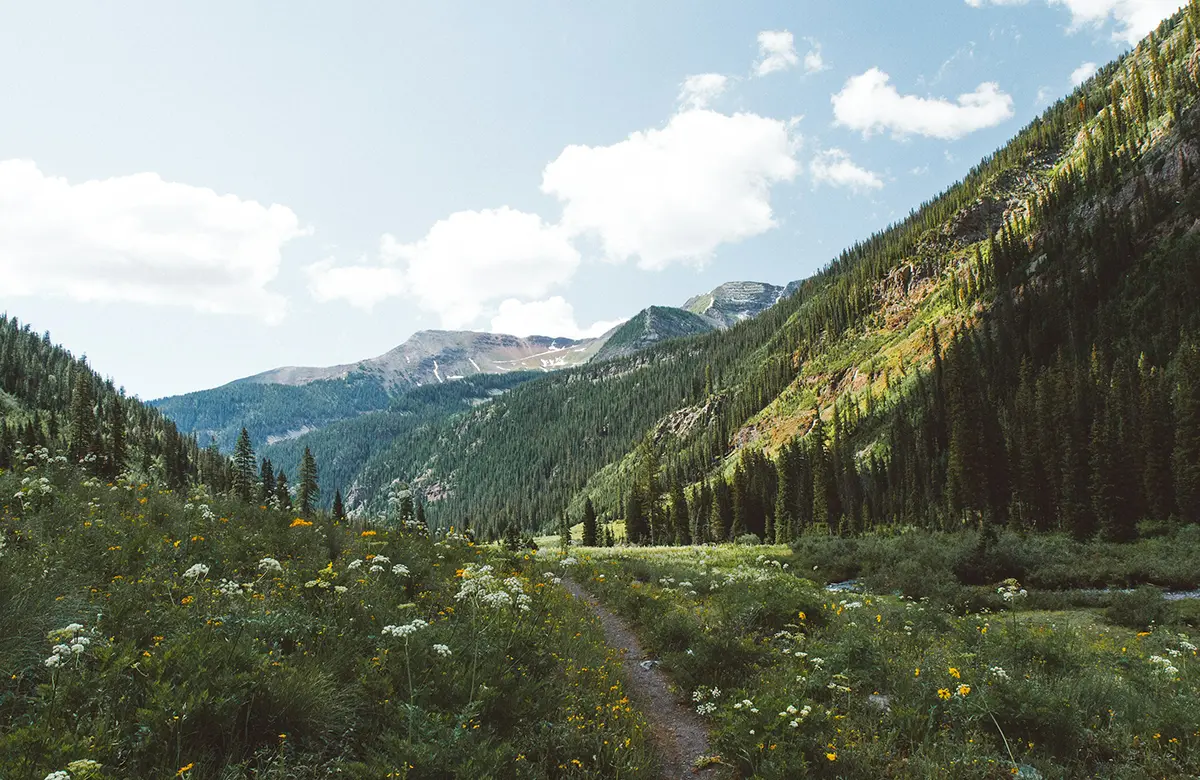
Making It Happen
Planning a Colorado spring break mountain adventure requires a different approach than booking a beach vacation. You're not just selecting a destination—you're positioning yourself to take advantage of opportunities that only exist in specific combinations of timing, weather, and access.
Transportation Strategy
Your transportation choices determine whether you experience Colorado's surface attractions or access the places that create lasting memories. The difference between rental car limitations and true backcountry capability shapes your entire trip.
Flying into Denver offers the most flight options and lowest prices, but adds 4-6 hours of driving to reach Southwest Colorado's best terrain
Regional airports like Durango-La Plata serve Southwest Colorado directly, eliminating drive time and getting you into adventure mode immediately
Why a capable 4x4 changes everything: it's the difference between viewing mountains through windows and actually exploring them
Winter driving conditions can appear without warning, making all-wheel drive and proper tires safety requirements rather than luxury features
Fuel stops become strategic decisions in backcountry areas where gas stations are separated by 50+ miles of mountain terrain
Cliffhanger Jeep Rentals specializes in vehicles built for Colorado's backcountry conditions. With locations in Durango, Telluride, Dolores, Silverton, and beyond, we position you exactly where the best adventures begin—no compromises, no limitations.
Accommodation Options That Actually Enhance Your Experience
Where you sleep affects how you experience mountains. Generic hotels work fine if you want to isolate yourself from the environment, but Colorado offers lodging options that make accommodation part of the adventure rather than just a place to recover from it.
Mountain lodges vs. city hotels: the difference between waking up to mountain views and driving to them
Camping possibilities in shoulder season offer solitude and night skies that summer crowds make impossible to experience
Unique stays like yurts, cabins, and historic properties connect you directly to Colorado's landscape and history
Location strategy: staying in smaller towns provides authenticity and access while avoiding tourist congestion
Weather backup plans: choose accommodations with indoor common areas for the inevitable spring storm day
Budget Reality Check
Colorado adventures operate on value principles that differ completely from beach vacation economics. Understanding where to invest money versus where to save it determines whether you have an expensive trip or a transformative one.
Money well spent goes toward transportation that opens up possibilities, accommodations that enhance rather than isolate you from the environment, and guide services that teach skills you'll use forever. Money wasted gets spent on gear you'll use once, tourist activities designed to separate you from cash efficiently, and premium accommodations that could be spent on additional adventure days instead.
Pro Tips for Group Economics:
Split 4x4 rental costs among 4-6 people and everyone saves money while gaining access
Vacation rentals with kitchens eliminate restaurant dependency in expensive resort areas
Camping splits make shoulder season weather manageable while keeping costs minimal
Activity sharing: one person's snowshoe rental becomes everyone's afternoon adventure
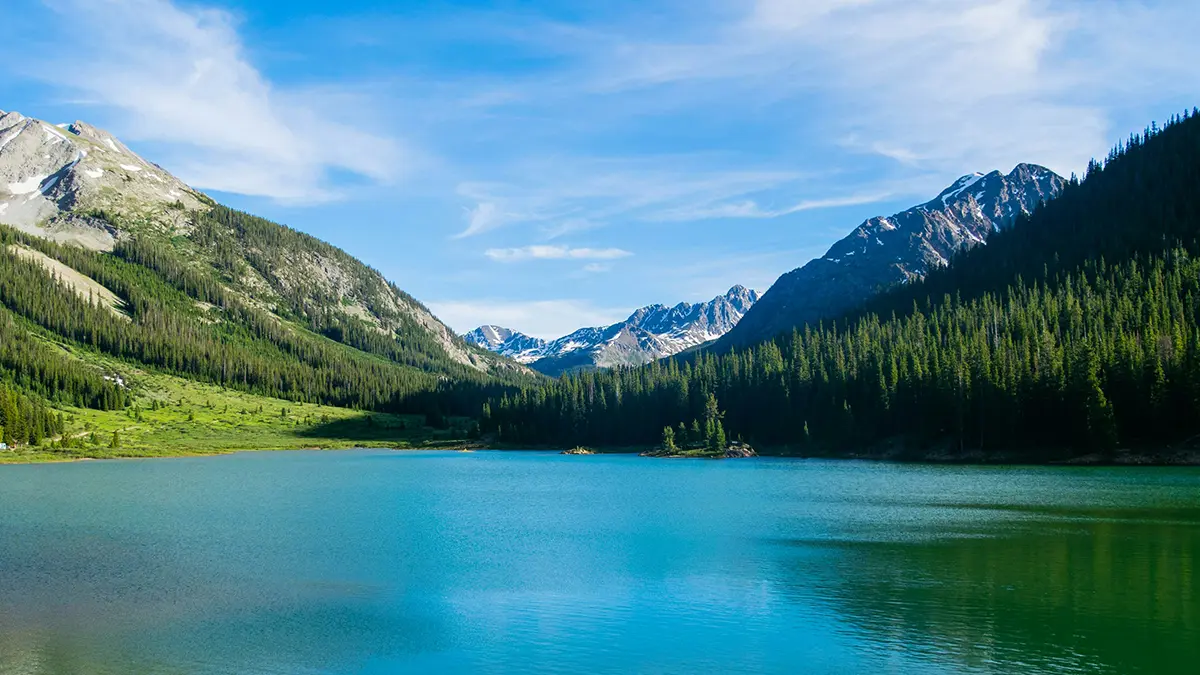
Why Colorado Spring Break Changes How You Think About Adventure
Beach vacations end when you return home. Mountain adventures begin a conversation with yourself about what you actually need to feel alive. Colorado's high country has this peculiar ability to recalibrate your baseline for what constitutes meaningful experience, making regular life feel both more manageable and more boring simultaneously.
The Story Quality Factor
Mountains generate stories that improve with time rather than fade with memory. Beach stories follow predictable patterns: weather, food, people, repeat. Mountain stories involve decision points, weather challenges, wildlife encounters, and moments of genuine uncertainty that create narratives with actual character development.
Keep in Mind:
Your worst weather day often becomes your favorite story to tell
Photos never capture the full experience, making personal memory more valuable
Physical challenges create mental breakthroughs that apply to non-mountain situations
Shared adversity bonds groups faster than shared comfort ever will
Success feels different when it required actual problem-solving to achieve
The Return Trip Planning Paradox
Most people start planning their next Colorado mountain adventure before their current one ends. This isn't tourism addiction—it's recognition that mountains offer experiences that scale infinitely. Each trip reveals new possibilities that weren't visible during previous visits, creating a learning curve that never flattens.
Colorado's high country operates on geological time scales that make human visits feel like brief conversations with something much larger than yourself. Once you understand this perspective, regular vacation destinations start feeling like expensive ways to avoid interesting experiences.
Ready to discover why Colorado spring breaks become annual traditions? Cliffhanger Jeep Rentals helps you access the backcountry that creates those transformative mountain memories. Book your Southwest Colorado adventure from Durango, Telluride, Dolores, or Silverton—and start planning your return trip before you even leave.

